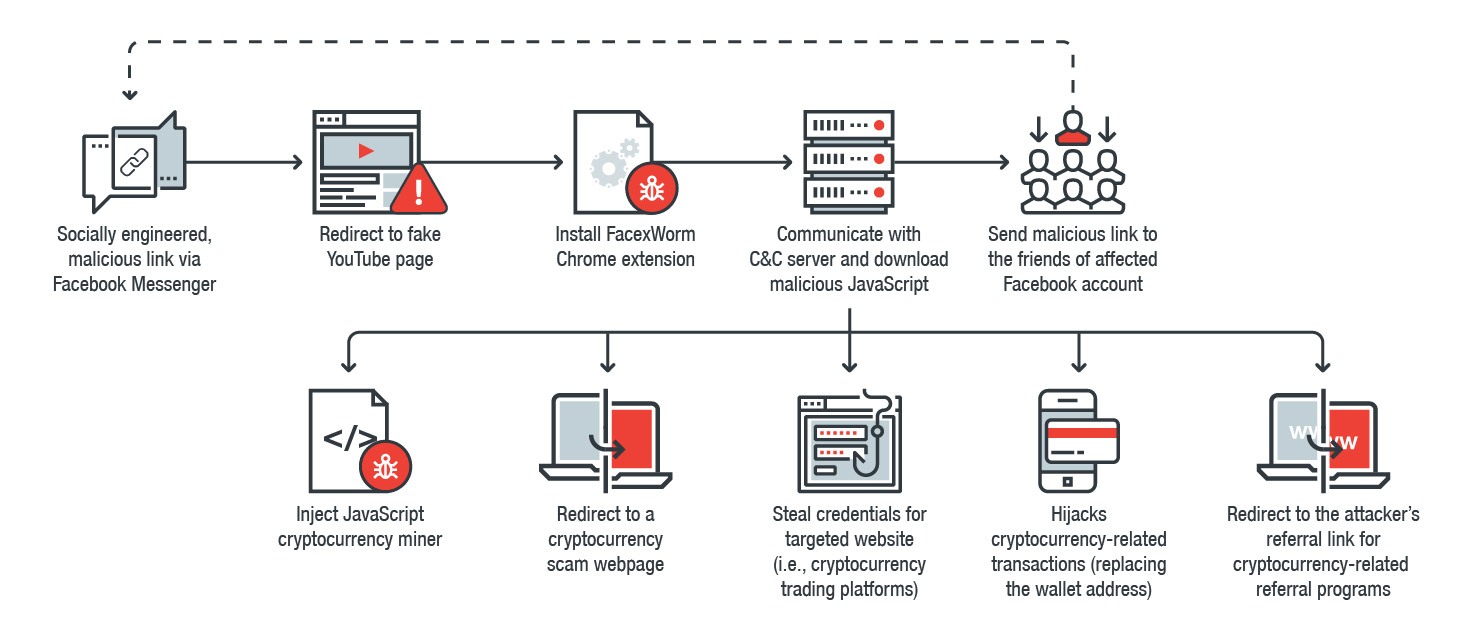Earlier this month, the security researchers at the firm TrendMicro spotted a new campaign related to FacexWorm that first surfaced last year. It targets Facebook users by sending them spam links in Facebook Messenger and leads them into installing a codec Chrome extension (hiding FacexWorm) through a YouTube-themed webpage.
The extension comes with a host of capabilities. TrendMicro found that the extension can extract usernames and passwords from login forms and send them to the attackers’ C&C server.

Working as a cyber security solutions architect, Alisa focuses on application and network security. Before joining us she held a cyber security researcher positions within a variety of cyber security start-ups. She also experience in different industry domains like finance, healthcare and consumer products.












